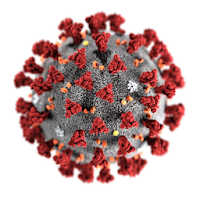2023 and the COVID-19 pandemic
As El Salvador enters 2023, it is at the end of what has been labelled its 6th wave of COVID-19 cases. This was a surge of cases which began in October/November 2022 primarily due to the impact of Omicron subvariants.
According to the Ministry of Health there were only 10 patients in the Hospital El Salvador for treatment of COVID-19 as of January 9, and only 8 persons tested positive that day for the virus across the country compared to as many as 350 daily cases at the end of November.
When the 2023 school year starts on February 6, the last pandemic measures will ease. While the entire 2022 school year was hybrid with a mixture of in-person and remote learning, public schools in 2023 will finally return to all in-person classes.
President Bukele who was the country's lead communicator on the pandemic in 2020 has moved on and never mentions the pandemic these days. The last presidential tweet using the word "Covid" was in December 2021.
Mask wearing is not mandated, but is still seen in public spaces, although at much lower levels than a year ago. Gone are the temperature checks and the sanitizing gel at the entrance to every restaurant and supermarket.
Although the official death count in El Salvador from the COVID-19 pandemic is 4296 as of December 31, researchers at the Institute for Health Metrics and Evaluation (IHME) at the University of Washington estimate that the actual number of pandemic-related deaths since March 2020 has reached almost 26,000, a gross under-reporting which serves the government's version of how well it has managed the pandemic.
Was El Salvador's performance in managing the pandemic from a public health perspective above average? While the country probably did a better job than the US, it's not possible to know with certainty the quantity of COVID cases and deaths in the country.
The government only counted as caused by COVID-19, those cases and deaths which had a positive result on a PCR test administered by the government, and the government had a set limit of tests it would perform each day in various parts of the country (roughly 2500 tests per day through January 18, 2022 and 4700 daily tests after that).
The government stopped reporting even that limited data on its official COVID-19 dashboard in October 2021, which had previously disclosed the government's tally of the number of cases, deaths and vaccinations.
Regardless of what those actual numbers may be, Salvadoran citizens believe the government has managed the pandemic well.
In a recent poll by La Prensa Grafica, management of the pandemic was listed as one of the primary achievements by president Bukele, only trailing improvements in public security and fighting crime. Respondents rated Minister of Health Francisco Alibi as having the best performance of various officials in the Bukele government.
By way of disclosure, I was in El Salvador and caught COVID-19 in the surge of cases during November last year. When I tested positive on a home test brought from the US, I contacted the Salvadoran Ministry of Health hotline (Dial 132). After answering a series of questions, within 24 hours I received a packet of vitamins, aspirin and acetaminophen, as well as a full course of the antiviral medication molnupiravir. Now I can't say that what was continued in those packets contributed to my easy recovery or not, but the example of a government which promptly responds with home delivery of free medication, helps explain why Salvadorans feel the health ministry is doing its job. The early acquisitions of large quantities of vaccines, the construction of Hospital El Salvador for treating COVID patients, and the careful control of the narrative surrounding the disease's impact in El Salvador all have contributed to the government's image of competence.
Next in our series on today's reality in El Salvador -- Bitcoin

Comments
https://medlineplus.gov/druginfo/meds/a622027.html